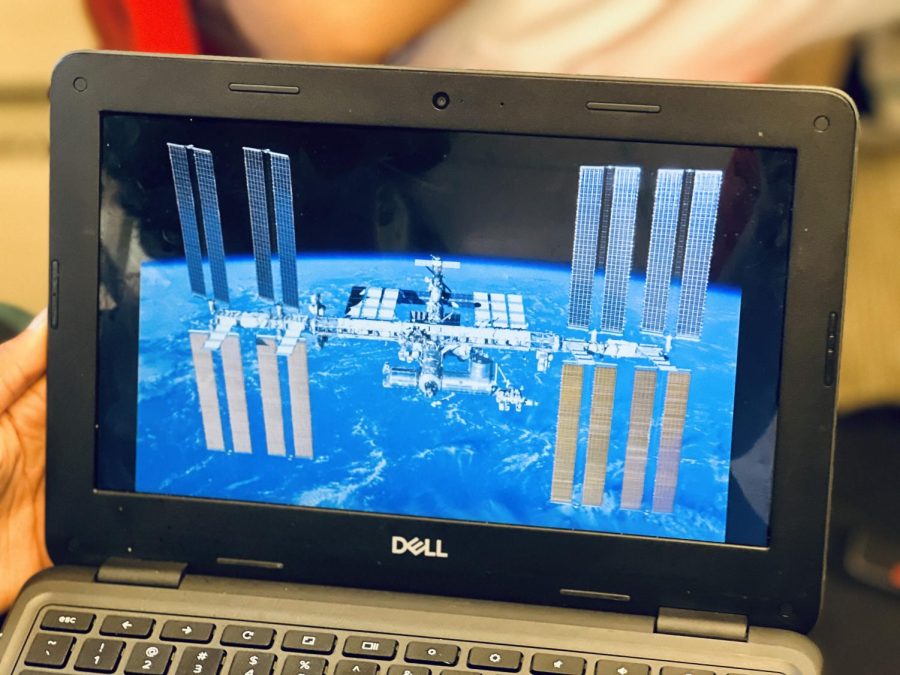ISS hanging by a thread: How will space play a role in the future of international relations?
The ISS is a collaborative project among multiple countries, serving as a remarkable orbital research laboratory and a symbol of global cooperation in space exploration.
The International Space Station, or ISS, is among the biggest modules ever launched into space by humanity, representing a colossal international effort.
“[The International Space Station] is our cooperation in space and very important in the story of space exploration,” said Anish Rao (‘24).
Being an orbital laboratory, intense cooperation is required between participating nations including the United States, Japan, and Canada. However, following international sanctions as a result of the Ukraine war, Russia announced that it would pull out of the ISS program after 2024 last July.
“With the Ukraine war, and increased tensions between Russia and other countries, there’s a lot going on. Russia pulling out of the ISS is more divide between these nations,” said Vivaan Vora (‘25).
The fate of the ISS is the beginning of the extension of foreign relations into space affairs. Going forward, actions in space may be used to reflect tensions on Earth’s surface. By threatening the future of the ISS, Russia gained significant negotiating power.
“Losing the International Space Station would be a huge setback for science and cooperation with countries. And to lose something that has been in space for so long, it’s crazy,” said Danny Park (‘26).
Luckily for the spacecraft, Russia changed plans, committing to the ISS for another five years minimum. The future of space is in safe hands, for now.
“Space is just so big and exploring it reminds us of how small we are. But we have to dream big and reach for the stars,” said Anish Rao (‘24).
Your donation will support the student journalists in the AVJournalism program. Your contribution will allow us to purchase equipment and cover our annual website hosting costs.

